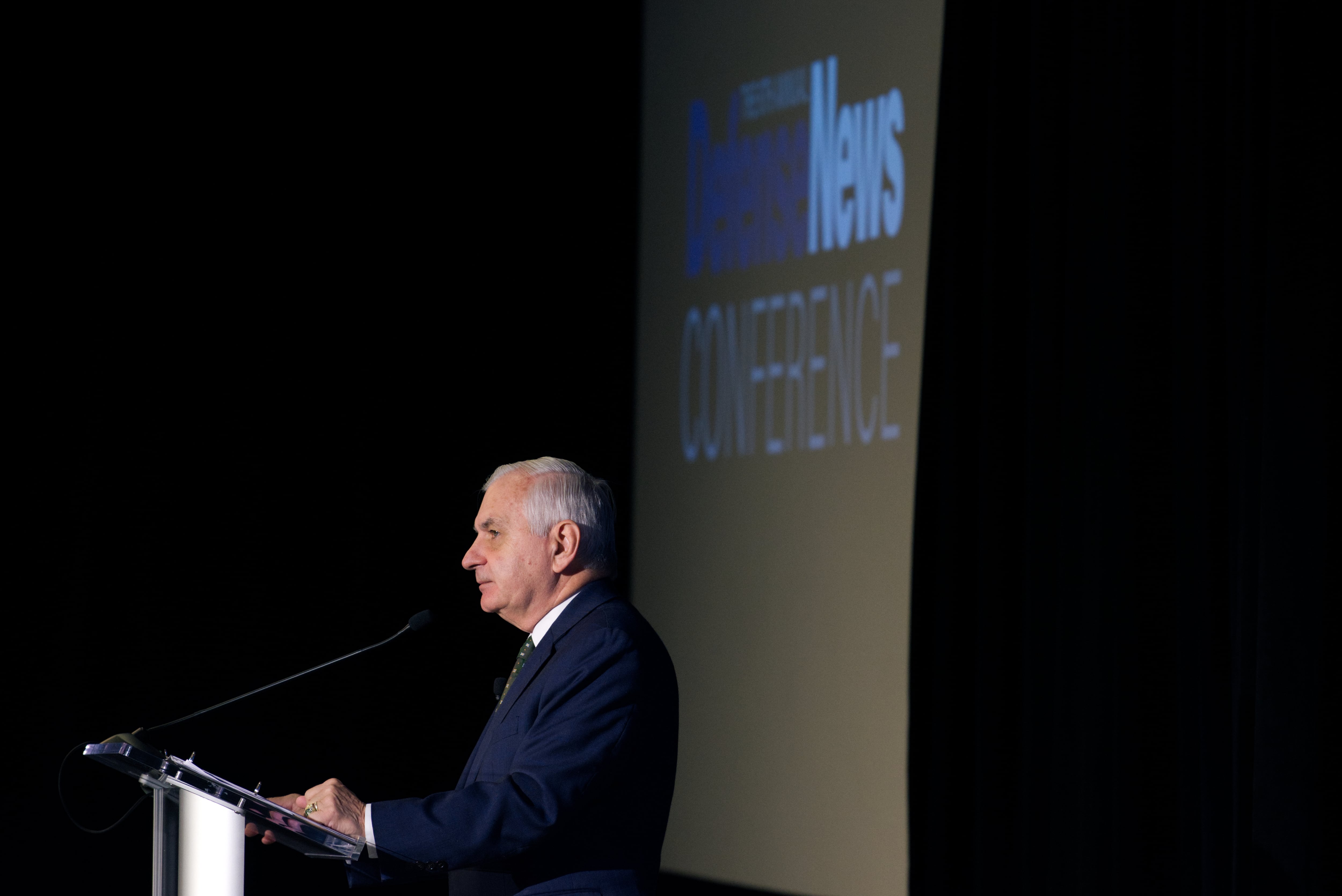An increasing number of political attacks on military members is hurting both troops’ morale and force readiness, the Senate’s top defense Democrat warned during a speech at the annual Defense News Conference on Wednesday.
“There is a long tradition within the American military of being apolitical, which is essential for our democracy and civilian control of the military,” Senate Armed Services Committee Chairman Jack Reed, D-R.I., said during a wide-ranging speech at the event.
“Yet some have chosen to publicly disparage our military leaders for political purposes by generating a sense of outrage and indignation,” Reed added. “While such attacks may serve a short-term political agenda, in the long run it damages our national interest by eroding trust within the ranks, sowing doubt within our civil society, and benefiting our adversaries.”
Reed said he believes the problem is a reflection of growing political polarization across America today, but added that he is concerned with the military being drawn into those vicious fights.
RELATED

Military leaders in recent years have urged troops to avoid behaviors which could politicize the military, going beyond routine election year reminders. They include new rules for participating in political rallies and engaging in divisive social media fights.
But those efforts have been met with limited success.
Joint Chiefs Chairman Gen. Mark Milley was harshly criticized by Democratic lawmakers for appearing beside then-President Donald Trump for a controversial photo op in summer 2020. He then received equal attacks from conservatives after apologizing for the appearance and criticizing some Trump decisions.

Over the last year, several House Republicans have also accused military leaders of pushing a progressive agenda by elevating issues of diversity and gender equity in the ranks. Democratic lawmakers in turn have accused Republicans of undermining efforts to build camaraderie and leadership confidence in the ranks.
Reed, whose committee has been in the center of many of the fights, said politicization of the military further complicates already difficult recruiting and retention efforts.
“I am concerned about the cohesion of our force,” he said. “Twenty years of high operations tempo has worn down connections between commanders and troops, and too often issues such as sexual harassment and assault and racism have created division.”
The chairman said he is also concerned with the “growing proportion of military personnel who are second, third and even fourth generation volunteers.” Reed said recruiting efforts need to be expanded to include candidates with new backgrounds and viewpoints.
“As fewer Americans are exposed to the military and service becomes narrowed to a family tradition, we could see the force become more isolated from the broader population,” he added.
Lawmakers have included new recruiting incentives in their planned defense authorization bill for fiscal 2023.
Reed said he hopes to have that legislation on the Senate floor sometime this month, with an eye towards passing compromise legislation with House negotiators sometime this fall.
Leo covers Congress, Veterans Affairs and the White House for Military Times. He has covered Washington, D.C. since 2004, focusing on military personnel and veterans policies. His work has earned numerous honors, including a 2009 Polk award, a 2010 National Headliner Award, the IAVA Leadership in Journalism award and the VFW News Media award.








